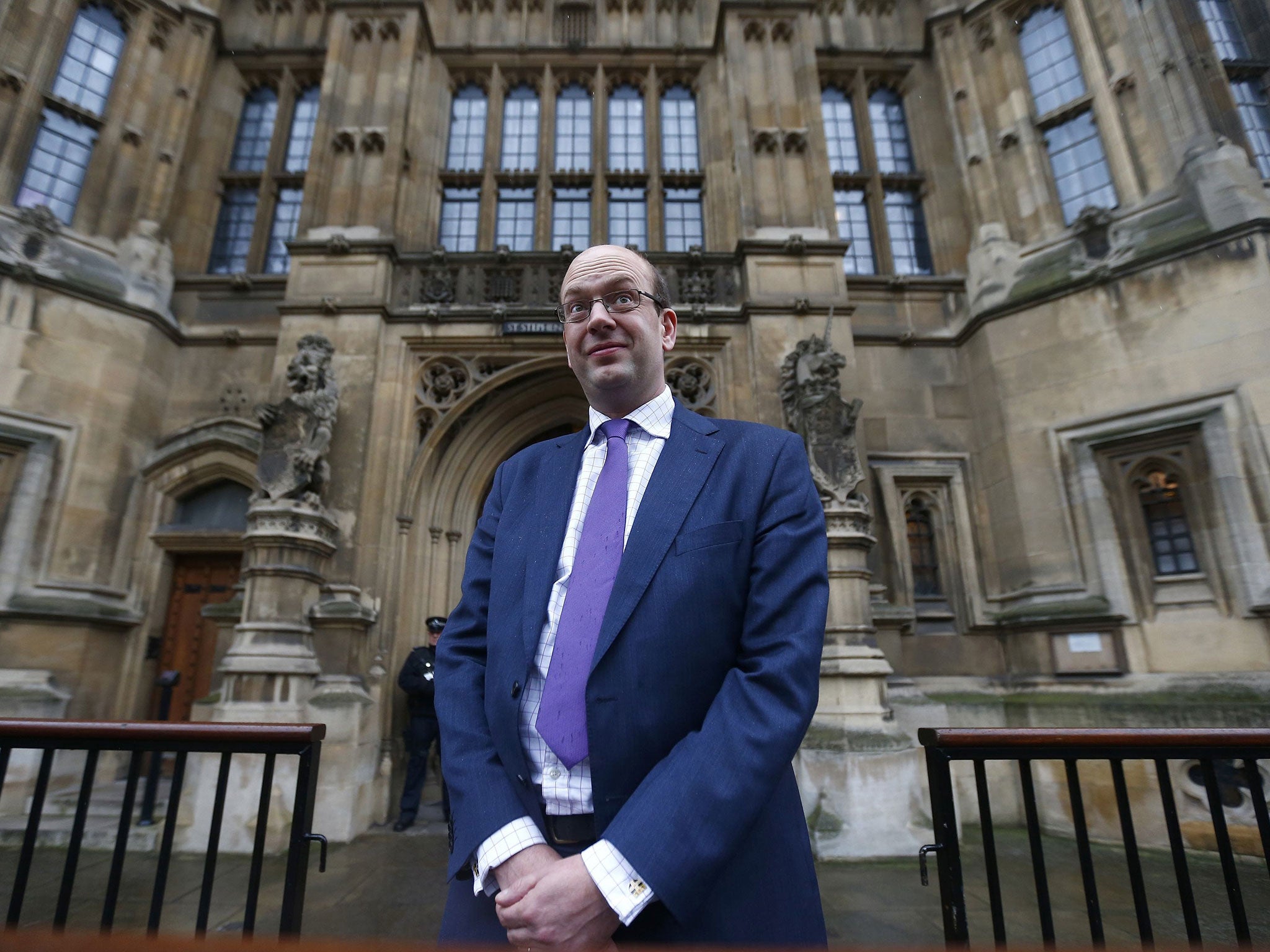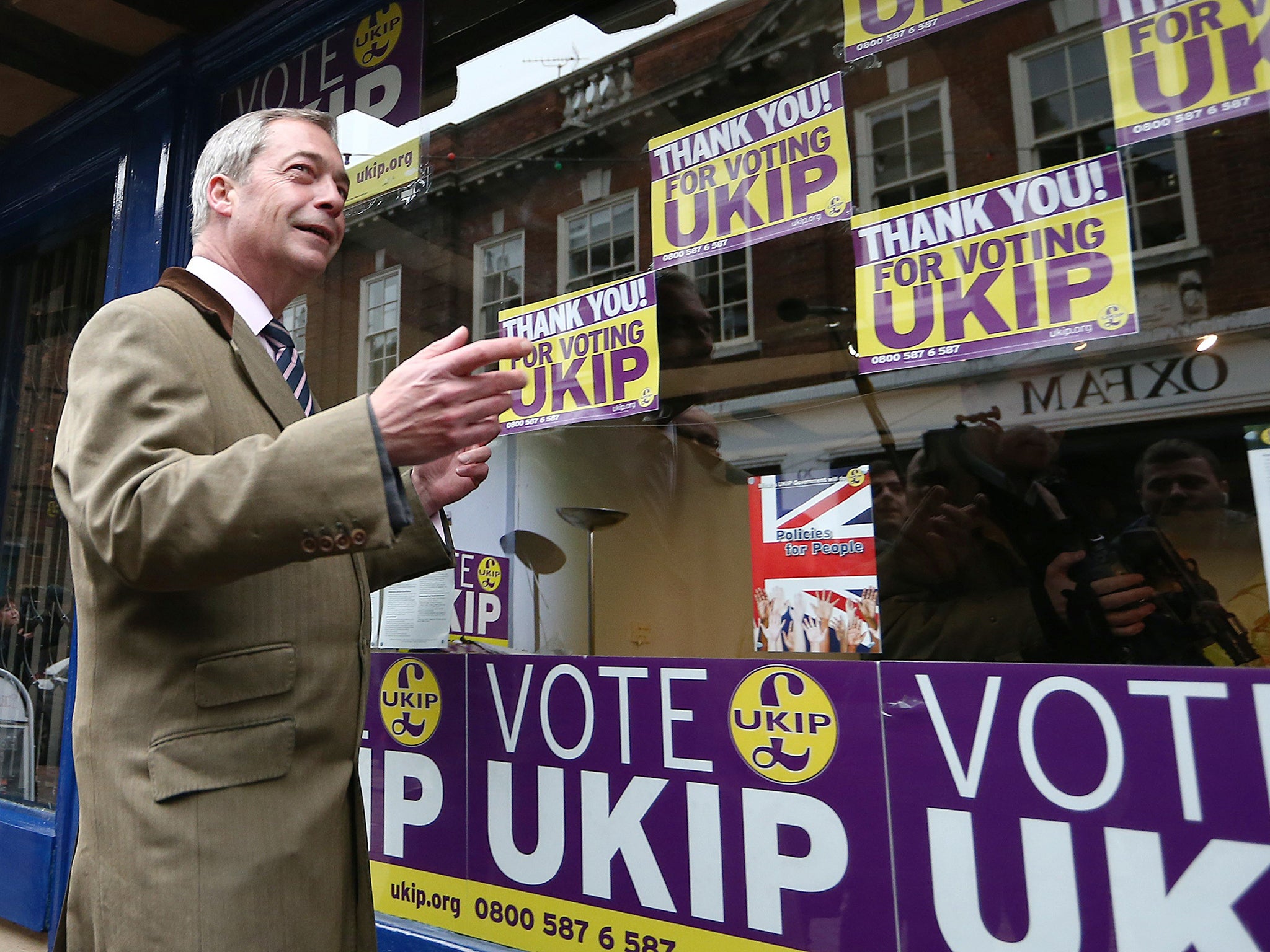Rochester by-election: An expression of voters’ rage that is unlikely to dissipate
Vote Ukip, get coalitions: Rochester shows that two-party politics are a thing of the past

Your support helps us to tell the story
From reproductive rights to climate change to Big Tech, The Independent is on the ground when the story is developing. Whether it's investigating the financials of Elon Musk's pro-Trump PAC or producing our latest documentary, 'The A Word', which shines a light on the American women fighting for reproductive rights, we know how important it is to parse out the facts from the messaging.
At such a critical moment in US history, we need reporters on the ground. Your donation allows us to keep sending journalists to speak to both sides of the story.
The Independent is trusted by Americans across the entire political spectrum. And unlike many other quality news outlets, we choose not to lock Americans out of our reporting and analysis with paywalls. We believe quality journalism should be available to everyone, paid for by those who can afford it.
Your support makes all the difference.Yesterday the Conservatives resorted to the old clichés about by-elections being a mid-term protest as they expressed confidence they would regain Rochester and Strood from Ukip’s Mark Reckless at next May’s general election.
It was an inevitable but inadequate response. If the Tories really believe the “Farage effect” is just another mid-term blip, they really are the stupid party. I suspect they know the politics of anger and grievance, skilfully tapped into by Ukip, will not suddenly melt away next May. Although Ukip offers few solutions, the temptation for voters to say “a plague on all your houses” will be strong.
The Tory election strategy is clear: if you want a long-term economic plan, action on immigration and welfare and an in/out referendum on Europe, vote for us. If you vote Ukip, you risk putting Ed Miliband into Downing Street. “We will ask people to get serious, remind them they are choosing a government and a prime minister,” one senior Tory told me. But he admitted: “We haven’t a clue how many we will get back from Ukip.”
Rochester gave Nigel Farage a neat riposte to the Tories’ “vote Ukip, get Miliband” pitch. He said the by-election showed that “when you vote Ukip, you get Ukip”.
Mr Cameron is getting conflicting advice on how to combat the Ukip threat. Tory modernisers believe the by-election proves that you cannot “outkip Ukip”. In recent weeks, the Prime Minister has ramped up the rhetoric on the EU and immigration but it didn’t halt the march of Mr Farage’s “people’s army”. Tory modernisers fear Mr Cameron will only drive more natural Conservatives into Ukip’s arms by trying to ape it – while alienating the younger and ethnic minority voters the Tories will need to win future elections.
Mr Cameron’s problem is that he has an election to fight in May. So when he makes a big speech soon on his plans to limit EU migration, he will not want to pull his punches.
The Tories took comfort from being able to share the pain from Thursday’s by-election with Labour, which made another disastrous error when Emily Thornberry, the now former shadow Attorney General, tweeted a picture of a white van man’s house in Rochester with three England flags.
Like Ed Miliband forgetting to mention the deficit and immigration in his Labour conference speech, Ms Thornberry’s mistake was symbolic. It was an early Christmas present for Ukip as it targets Labour’s working-class supporters. At a time when politicians are accused of being out of touch, her remark that she had not seen anything like the three England flags was toxic.
Labour had hoped the by-election would provide a break from Mr Miliband’s woes, as the media spotlight turned to the Tories’ troubles. There was no such respite. Indeed, the Labour leader is one reason why there is no “wobble” on the Tory backbenches this weekend or any attempt to dump Mr Cameron, like the coup Mr Miliband had to see off this month. “Miliband gives us hope that we can still be the largest party after next May,” said a senior Tory MP. “He’s Cameron’s best asset. We are still in the game.”

Labour’s response to Rochester was more grown-up than the complacent Tory talk of mid-term blues. Douglas Alexander, who is charge of Labour’s election strategy, said last night that the “rising level of anger among the public” had built up over decades. “Simply amplifying anger is not enough – we need to offer answers,” he said. He argued that all the mainstream parties had to get to grips with a new 21st-century politics defined by contests over “identity and insecurity” rather than simply economic interests.
Ukip faces challenges too. Its mask slipped briefly on the NHS and immigration during the Rochester campaign, a foretaste of the media microscope it will now be under. The big question is whether our new multi-party politics – which also include the Scottish National Party and the Greens – can prosper under a first-past-the-post voting system designed for the two biggest parties.
Ukip is showing a new professionalism but will need it to translate its votes into seats next May. There have been false dawns before, not least when the breakaway Social Democratic Party almost pushed Labour into third place in the 1980s. Today feels very different. My hunch is that the “anger” will not dissipate just because the Tories and Labour tell voters the election is a two-horse race.
Voters have a way of getting what they want, despite the constraints of the electoral system. They could vote tactically where they think Ukip has a chance of winning to send a message to “the Westminster parties.” With Labour and the Tories running at neck and neck in the low 30s in the opinion polls, it looks increasingly like we will have another hung parliament.
My hunch is that Ukip could now win up to 20 seats. It is no longer barmy for Mr Farage to claim his party could hold the balance of power. However, he might not be alone; the Liberal Democrats and the SNP could be in the same boat. It might take a combination of more than two parties to create a Commons majority. If you thought the two-party coalition formed in 2010 was complicated, you ain’t seen nothing yet.
Subscribe to Independent Premium to bookmark this article
Want to bookmark your favourite articles and stories to read or reference later? Start your Independent Premium subscription today.
Join our commenting forum
Join thought-provoking conversations, follow other Independent readers and see their replies
Comments